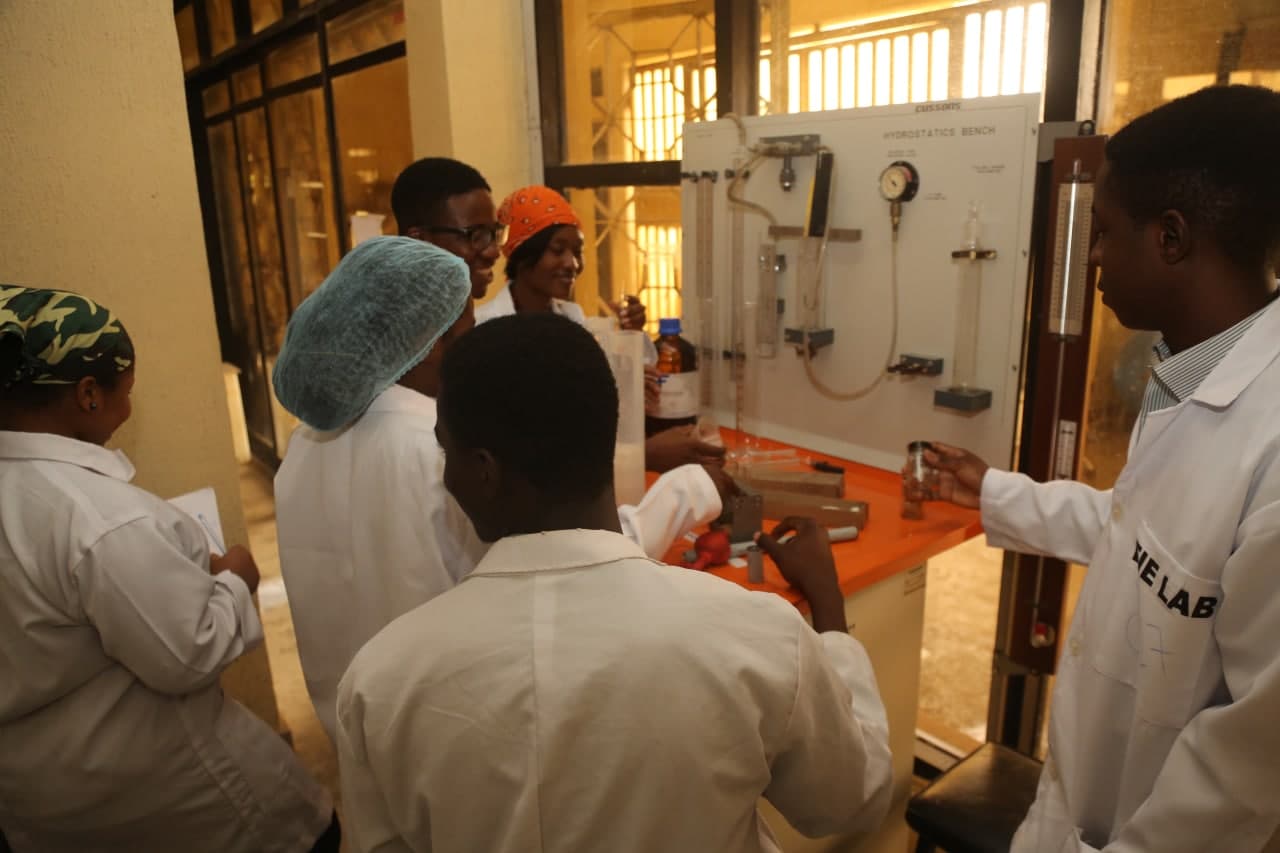
Overview
The department, situated in the College of Engineering, was founded in 2004. The department has a 5 years BEng. Degree programme, 2 years Masters programme and a 3 years Ph.D. programme. Our programmes are enriched with robust course outlines which are adequately and methodically packaged to prepare our students for the successful practice of the profession anywhere in the world.
The undergraduate student population is over 346. Apart from the visiting lecturers, the academic staff strength consists of Professors, Associate Professor, Lecturers I and Lecturers II, some of them have many years of industrial experience.
Some of the major state of the art undergraduate laboratory equipment in the department include an extraction unit, a CST reactor, a batch reactor, a distillation unit, ductless fume cupboards, a digital oxygen bomb calorimeter and a spray dryer and others. With this acquisition, the department is in a position to cover the wide field of chemical engineering education.
Postgraduate programme in the department is open to both the internal and external context. Ph.D. and Master's holders have been successfully raised through our highly enriched research programme. Apart from fundamental research, a fraction of our research is in the effective utilization of locally available raw materials for local industry; a good example is the production of Zeolites from Nigerian clays, a major industrial chemical with a wide range of application in different areas such as Refinery Hydrocracking Reaction Catalysis.
The final year projects are designed to prepare students for the larger society. Thus the topics usually cover applications of chemical engineering in diverse areas such as agriculture, health, food processing, and chemical product development.
The University has put in place an effective feedback system from our graduates and the report has always been positive; that is most of our graduates are employed shortly after Youth Service and a good number venture into small-scale projects in collaboration with senior colleagues that graduated before them.
The department in line with the University policy is reaching out in research collaboration with some Universities and industrial processing companies both within and outside Nigeria.
With pleasure, you are welcome to a forward-looking Chemical Engineering Department that is raising a new generation of leaders.
Mission
The Chemical Engineering Programme is designed to train graduates who will be producers rather than mere consumers. The Programme emphasizes not only the processing of materials but also the optimal utilization of locally available raw materials for the production of goods for local consumption and exports. This is designed to achieve SDGs 1, 2 and 9 of the UN Sustainable Development Goals, which aim at completely eradicating poverty, hunger and build a very vibrant industrial sector that will provide gainful employment for the citizens as well as the goods and services that modern societies thrive on. It is expected that the Chemical Engineers from the Department will play a major role in realizing this goal. Thus, the Programme is designed to contribute to the following industrial sectors of the economy, namely:
- Energy, Renewable Energy Systems and Products
- Wood and Wood Products;
- Pulp, Paper, and Paper Products, Printing and Publishing;
- Domestic and Industrial Rubber, Plastic and Foam;
- Non-Metallic Mineral Products including oil and gas; ;
- Textile, Wearing Apparel, Leather and Leather Products;
- Chemicals and Pharmaceuticals;
- Motor Vehicles and Miscellaneous;
- Food Beverages and Tobacco;
- Base Metals, Iron and Steel, and Engineering Services; and
- Electrical and Electronics.
The course contents address subjects in pesticides which are critical for the agricultural (food production) Programme. Similarly, foundation technologies for drug manufacturing are taught in the biochemical engineering module of the Programme.
Philosophy
Nigeria is becoming an industrialized nation. Many industries are either oil-based or gas-based. Though the chemical and food industry is still in its infancy in Nigeria, especially in the area of local content, a number of industries are springing up utilizing the various agro and mineral raw materials available in the country. Internationally, there is a projection of a dearth of qualified chemical engineers in the next decade. The Chemical Engineering Programme in Covenant University aims at training qualified engineers that can operate and manage industries in Nigeria and fill the international vacuum in the very near future. The training is to produce graduates, who will be producers of goods and services, and who, upon graduation, will be functional engineers in industries, researchers, scholars in the academia, or successful entrepreneurs in Chemical Engineering-propelled ventures. The training is designed to place the graduates on the leading edge of technology.
Objectives
- To put in place curricula that cover broad and dynamic engineering principles, working knowledge of entrepreneurial, marketing and management principles.
- To empower our students with necessary skills to create value and bring the solutions needed to tackle challenges in the chemical and allied industries.
- To make our graduates foremost chemical engineers both in the country and internationally through well-designed competency-based training programmes of teaching and research.
- To facilitate the acquisition of practical work experience in the industries.
- To inculcate discipline in research and development to chemical engineering graduates.
